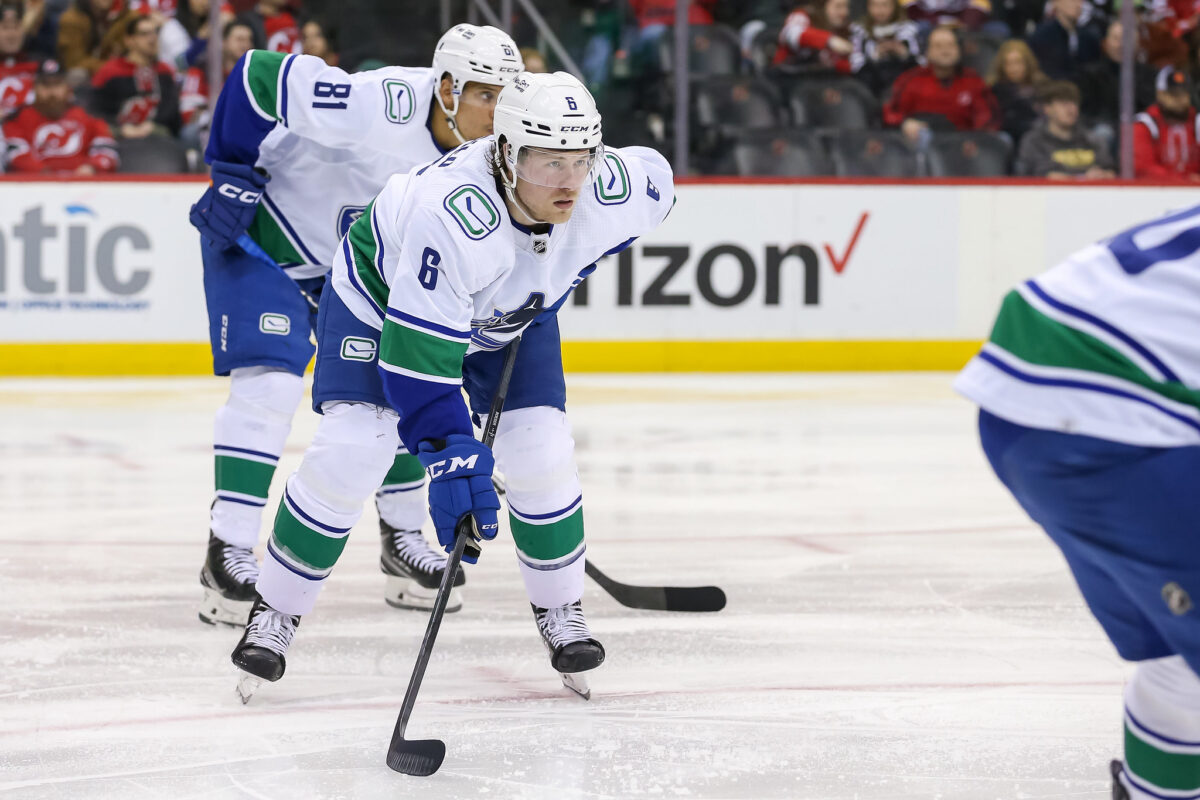In a thrilling overtime showdown, Elias Lindholm‘s clutch goal just 1:02 into the first extra frame propelled the Vancouver Canucks to a crucial Game 4 victory against the Nashville Predators. This triumph underscored their ability to thrive under pressure in pivotal playoff moments.
The Canucks’ knack for delivering in overtime was front-and-center as they hung around in a game they should probably have lost. As the clock ticked down, the team mounted an electrifying comeback to take a 4-3 victory in Nashville. Brock Boeser’s hat trick fuelled their rally, while Lindholm’s heroics sealed the deal. Ultimately, the game showed Vancouver’s determination in the face of adversity. As well, Canucks goaltender Arturs Silovs played well to hold his team in the game until the magic happened.
Related: Thatcher Demko Becomes Canucks’ First Vezina Trophy Finalist Since 2011
The Canucks have had a formidable penalty kill unit in the first round so far, operating at an impressive 92.3% efficiency over the first three postseason games. They were perfect again last night, killing off three Predators’ tries with the man advantage. Remarkably, with four games in the bank, they’ve successfully killed off 15 consecutive penalties. That’s heady stuff and demonstrates the team’s defensive ability to shut down opponents, even in critical overtime situations.
Brough and Halford Weigh in on the Canucks Comeback
After the comeback win to put the Canucks up 3-1 in the series, hockey analysts Jason Brough and Mike Halford shared their reactions. What excited them the most was the team’s sheer good fortune. It was a game the Canucks had no logical reason to win, yet they did.
As one can see in the video above, both analysts were visibly excited by the Canucks’ performance. They emphasized the significance of their come-from-behind overtime triumph, noting the miraculous nature of the game and touched on several key topics.
First, it was a historic comeback. Halford highlighted its rarity, noting it was only the third time in Canucks’ franchise history that the team scored an equalizing goal in the last 10 seconds of the third period in playoff games. This historical context added to the dramatic and exciting nature of the win.
Related: Arturs Silovs’ Confidence Soaring With Vancouver Canucks’ Win
Second, the goalkeeping situation was unique. Brough brought up the unusual circumstance of the Canucks using their third goalie within the first four games of the series. He hinted at the unpredictability and challenging conditions the team faced. That seemed to make the surprise even more palpable.
Third, Halford also noted how frustrating it must have been for the Predators. They missed a huge opportunity to put the game away late in the third period, when Colton Sissons hit the post on what could have been a game-sealing empty-net goal. However, they could not find any statistics on how often such an occurrence has happened. Nevertheless, their point highlighted the thin margins between victory and defeat and how good fortune played a part in this outcome.

Fourth, the emotional and social context of the win was huge. Both analysts touched on the emotional rollercoaster surrounding the game. Halford described a celebratory atmosphere at a party, suggesting the excitement around the Canucks’ good fortune. Both described the mix of euphoria and exhaustion fans felt after such a game.
Finally, both analysts reflected on the improbability of the occurrence with the question, “How in the heavens did that happen?” This rhetorical question emphasized the unexpected nature of the comeback and the disbelief, even among seasoned hockey analysts as they are.
Related: Hockey Insider Sees Zadorov as Perfect Fit for Canucks Blue Line
Overall, Brough and Halford painted a picture of a game that was not just a sporting event but a memorable and unlikely sporting moment. The game was filled with emotional highs, historical significance, and a large touch of serendipity. Yet, all these contributed to the story of a miraculous sports victory.
